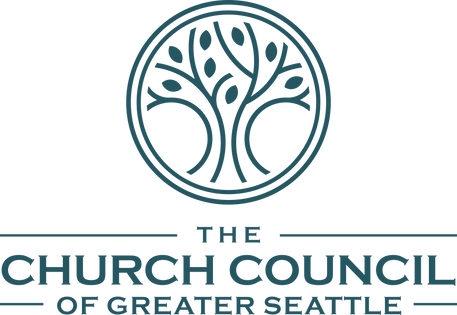Meet Roberto
P: ¿Podría compartir con nosotros un poco sobre cuál es su nombre, cuál es su trabajo comunitario y cómo se ha conectado con el Grupo de Solidaridad del Consejo de Iglesias del Church Council of Greater Seattle?
R: Roberto explicando que dejó Venezuela debido a problemas políticos y amenazas del gobierno. Inicialmente llegó a Renton, donde conoció al Pastor Gerardo quien le ha estado ayudando. Ha estado en EE.UU. por unos meses y ha recibido un apoyo significativo.
P: ¿Cuál fue exactamente la causa que provocó su salida de Venezuela para venir a Estados Unidos?
R: Roberto citó la situación económica en Venezuela, la corrupción gubernamental y las amenazas de grupos armados como razones para irse. También mencionó desacuerdos con las políticas socialistas del gobierno y el apoyo a movimientos de izquierda en América Latina.
P: ¿Cuál era su papel allí en su comunidad?
R: Roberto era un líder comunitario y activista. Comenzó a trabajar para las comunidades en 1999 pero se desilusionó con el gobierno alrededor de 2002-2003, dándose cuenta de que no estaban cumpliendo sus promesas de reducir la burocracia y eliminar la corrupción.
P: ¿Qué es lo que más le ha gustado aquí en Estados Unidos?
R: Roberto expresó gratitud por el apoyo del Grupo de Solidaridad del Church Council of Greater Seattley la naturaleza acogedora de los estadounidenses. Apreció cómo se preocupan por los inmigrantes y proporcionan información sobre leyes y sistemas en EE.UU.
P: ¿Qué es lo que menos le ha gustado en Estados Unidos?
R: Roberto mencionó la falta de apoyo para los inmigrantes, tener que dormir en tiendas de campaña y parques, y mojarse. Sin embargo, reconoció que sabían que venían a luchar y lo están haciendo.
P: ¿Dónde vive ahora?
R: Roberto dijo que actualmente vive en una iglesia, mencionando el apoyo de los feligreses y así como del pastor que está ayudando con los procesos de asilo.
P: ¿Qué significa su participación para el Grupo de Solidaridad del Church Council of Greater Seattle?
R: Roberto usó esta pregunta para animar a los líderes comunitarios en su país de origen a seguir luchando. Expresó la esperanza de que desde EE. UU. encontrarían formas de apoyar a esos líderes. También comentó sobre la situación política actual en Venezuela, expresando preocupación por el proceso electoral y el control del gobierno sobre las instituciones.
Q: Could you share with us a little about your name, your community work, and how you became connected with the Solidarity Group of the Church Council of Greater Seattle?
A: Roberto explaining that he left Venezuela due to political problems and threats from the government. He initially arrived in Renton, where he met Pastor Gerardo Guzman, who has been helping him. He’s been in the U.S. for a few months and has received significant support.
Q: What exactly caused you to leave Venezuela and come to the United States?
A: Roberto cited the economic situation in Venezuela, government corruption, and threats from armed groups as reasons for leaving. He also mentioned disagreements with the government’s socialist policies and their support for left-wing movements in Latin America.
Q: What was your role in your community back in Venezuela?
A: Roberto was a community leader and activist. He started working for the communities in 1999 but became disillusioned with the government around 2002-2003, realizing they were not fulfilling their promises to reduce bureaucracy and eliminate corruption.
Q: What have you liked the most about the United States?
A: Roberto expressed gratitude for the support from the Solidarity Group of the Church Council of Greater Seattle and the welcoming nature of Americans. He appreciated how they care for immigrants and provide information about U.S. laws and systems.
Q: What have you liked the least about the United States?
A: Roberto mentioned the lack of support for immigrants, having to sleep in tents and parks, and getting wet. However, he acknowledged that they knew they were coming to fight and are doing just that.
Q: Where do you live now?
A: Roberto said he currently lives in a church, mentioning the support from congregants and the pastor who is helping with his asylum process.
Q: What does your participation in the Solidarity Group of the Church Council of Greater Seattle mean to you?
A: Roberto used this question to encourage community leaders in his home country to keep fighting. He expressed hope that from the U.S., they would find ways to support those leaders. He also commented on the current political situation in Venezuela, expressing concern about the electoral process and the government’s control over institutions.



